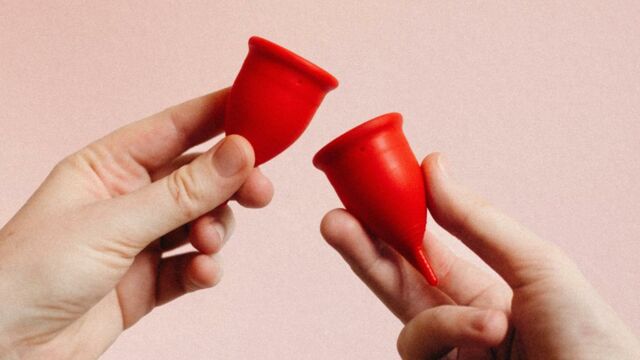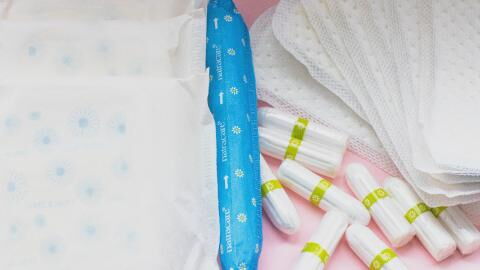Periods are an essential phase of a healthy menstrual cycle. Humans are actually one of the few mammals that have periods, including bats, elephant shrew and simians. Most mammals operate on an estrous cycle instead, which means there are times when it is possible to get pregnant and times where it’s not.
Discover our latest podcast
So why is it that humans menstruate in the first place?
What is menstruation?
Menstruation is the body’s way of getting rid of tissue that is no longer needed. Every month from the year a person begins puberty (around the ages of 11-14), the body will prepare for pregnancy. This starts when the pituitary gland releases hormones that communicate with the uterus and ovaries.
During this time, the uterus begins to thicken its lining, known as the endometrium. Simultaneously, one of the two ovaries will release a mature embryo for fertilisation. If the person does not become pregnant, then the embryo disintegrates, and the hormones send a signal to the uterus to shed its lining.
Afterwards, the body once again goes through the process of building up the endometrium and maturing embryos in preparation for pregnancy. This monthly process is known as the menstrual cycle and will continue until menopause, around the age of 45-55.
Menstruation typically occurs in women, but anyone with a functioning uterus and vagina can menstruate no matter their gender. Dr Jennifer Conti revealed to SheKnows:
Not all women menstruate and not all people who menstruate are women. If you have a uterus and aren’t pregnant/breastfeeding, menopausal, hormonally suppressing your periods, or dealing with a condition like PCOS, then you’re likely menstruating.
Furthermore, not all women have periods; some women with a uterus may suffer from underlying health conditions that disturb the functions of the menstrual cycle.
Why do we menstruate?
We know what menstruation is and its primary functions, but not much is known about why humans menstruate when other mammals don’t. In fact, this topic has had evolutionary biologists scratching their heads for as long as we can remember.
There is now growing evidence to suggest that menstruation is actually a by-product of uterine evolution, resulting from an internal conflict between the parent and foetus.
Humans have particularly hungry hemochorial embryos whose placentas attach themselves to the parent’s blood supply. This means that the parent and the embryo compete for the parent’s resources. On the one hand, it is in the parent’s best interest to survive pregnancy to continue to have children. On the other hand, the embryo benefits by absorbing as much of the parent’s resources as it can. This leads to a conflict occurring out of self-defence.
Those with a uterus build up a thick endometrium to protect themselves from the particularly invasive embryo. Endometrium production supplies embryo’s with nutrients and makes it harder for them to implant themselves into the uterine wall. However, the embryo eventually eats its way through the endometrium and remodels the parent’s uterine blood vessels to redirect blood supply to the embryo.
If the parent does not become pregnant or the embryo fails to implant itself, then the embryo is flushed out of the body with the endometrium during menstruation.
Is it possible to prevent menstruation?
Aside from menopause or hysterectomies, there are no ways in which menstruation can be permanently halted. However, some birth control methods - like the combined hormonal pill and the continuous cycle pill- can help you delay your period. Other forms of birth control, including implants, injections, and IUD’s have a chance of suppressing your menstrual cycle after some time, but this chance is far from our control.
Remember that menstruation is an entirely normal part of life, and you should be having them regularly. If you do not and are concerned as to why it’s a good idea to book an appointment with your doctor.















